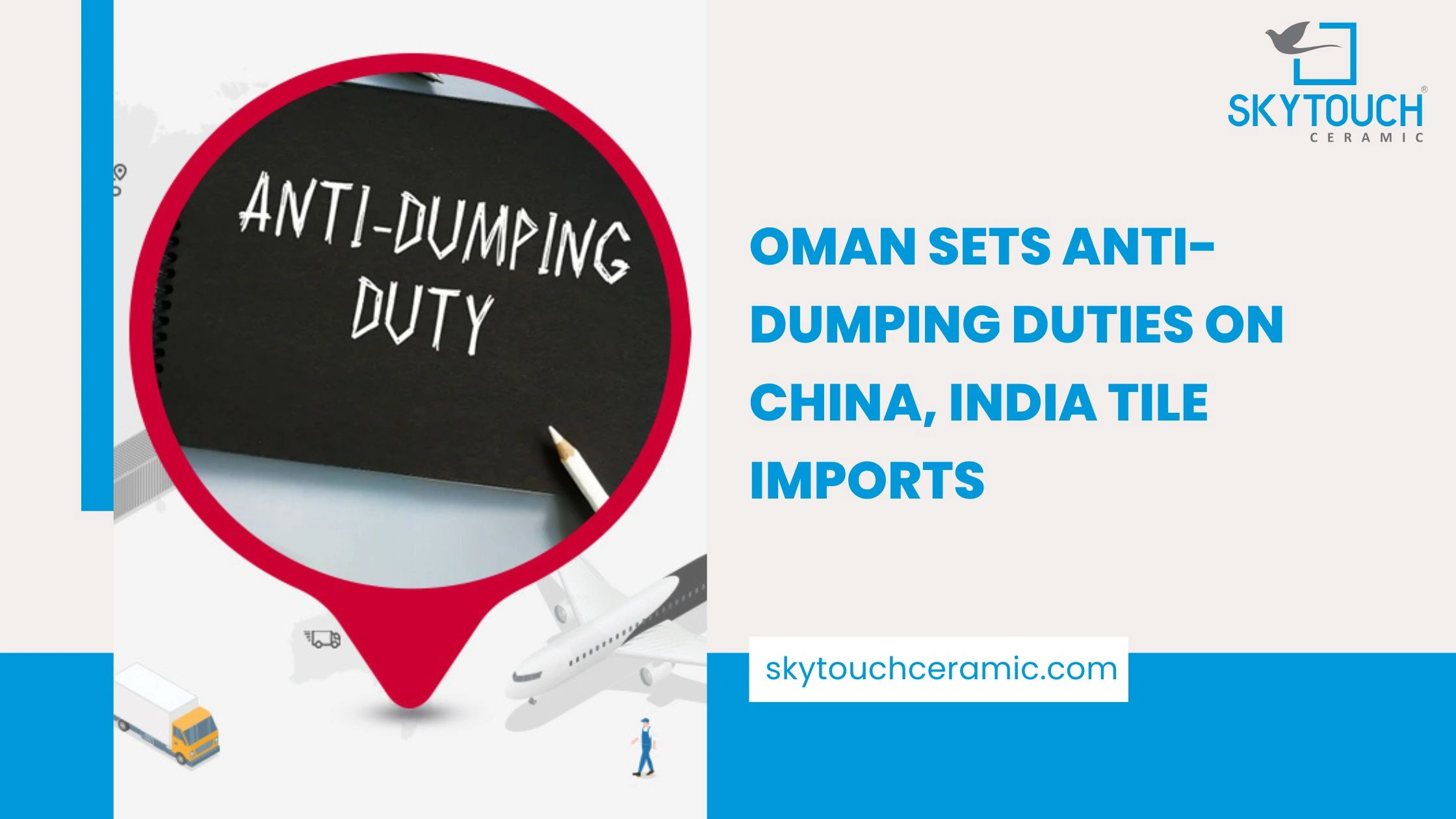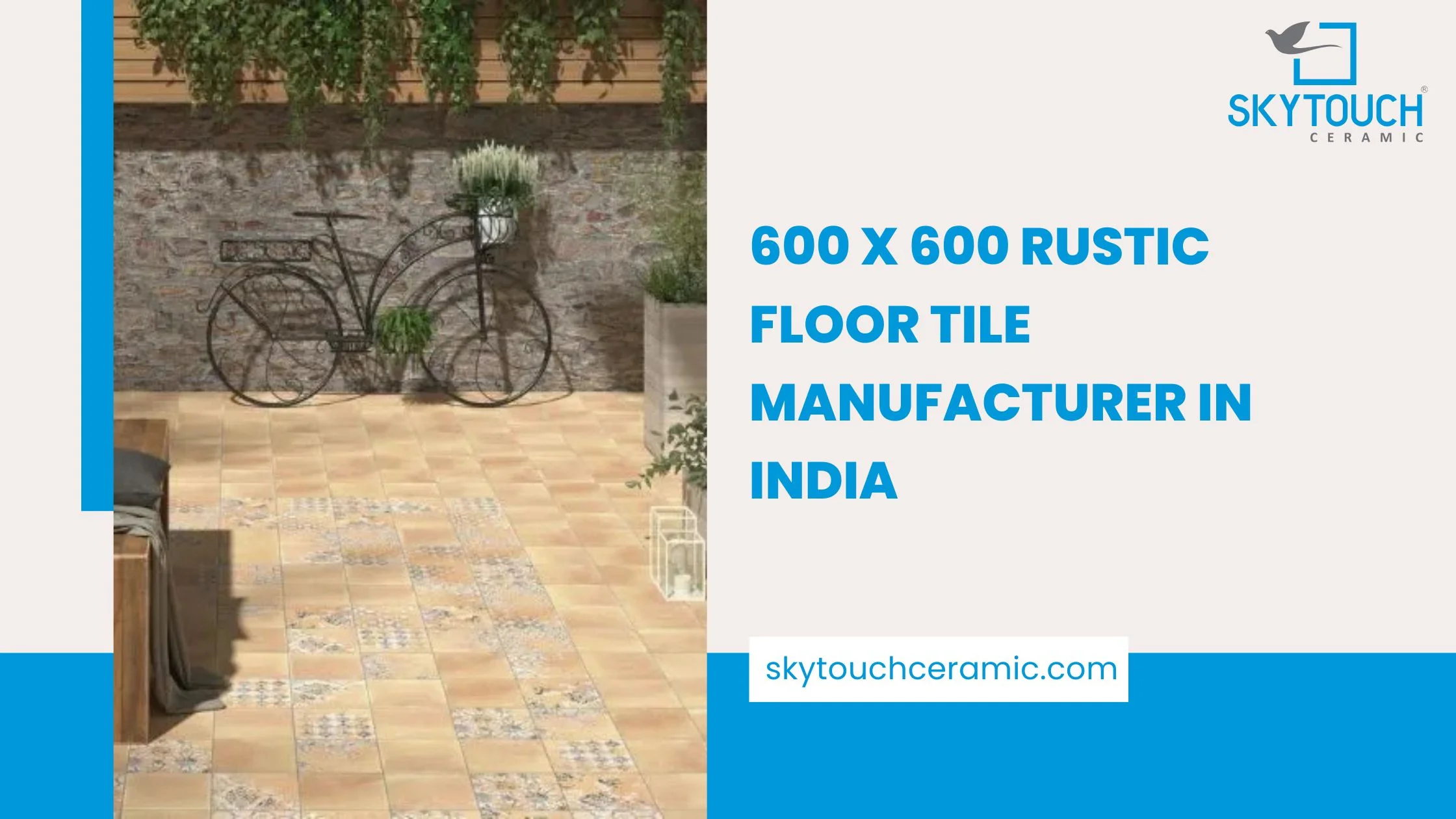Muscat, May 2025, Oman has announced the implementation of anti-dumping duties on ceramic and porcelain tile imports originating from China and India, effective from May 29, 2025. This strategic move, led by the Ministry of Commerce, Industry, and Investment Promotion, aligns with the Gulf Cooperation Council (GCC) Unified Law on Anti-Dumping, Countervailing, and Safeguard Measures. The objective is to protect local industries and promote fair competition within the domestic market.
What Are Anti-Dumping Duties?
Anti-dumping duties are special tariffs applied to imported goods sold at prices below fair market value — often lower than production costs. These duties aim to counteract “dumping,” where foreign producers underprice exports to gain unfair market advantage, damaging local industries. By imposing these tariffs, Oman seeks to level the playing field for domestic manufacturers and prevent market distortions caused by underpriced imports.

Reasons Behind the Duties
Industry Complaints: Gulf-based porcelain and ceramic tile manufacturers filed formal complaints alleging unfair dumping practices by exporters from China and India.
Thorough Investigation: The GCC Secretariat conducted an extensive 12-month investigation involving all stakeholders. The findings confirmed dumping and its harmful effects on the regional industry.
Coordinated GCC Response: The duties form part of the GCC’s unified trade protection framework, ensuring a collective and consistent regional approach.
Background and Rationale
The decision follows formal complaints from Gulf-based ceramic and porcelain tile manufacturers, who alleged that imports from China and India were being dumped into local markets at unfairly low prices. Such dumping practices were said to distort market prices, undermine local producers, and threaten the competitiveness of domestic industries.
To address these concerns, the GCC Secretariat, through its technical office, conducted a comprehensive investigation over 12 months, involving all relevant stakeholders. The findings confirmed that dumping was occurring and causing material injury to the local industry. Based on these results, technical reports were submitted to the GCC Permanent Committee and the Industrial Cooperation Committee, which ultimately decided to impose anti-dumping duties for a period of five years.
Official Statements
Ahmed bin Salem Al Rasbi, Director General of the Center for Competition and Anti-Monopoly, highlighted the strategic importance of these duties in maintaining a fair and competitive GCC trade environment. He emphasized that these measures will:
• Protect domestic industries from damaging dumping practices.
• Promote balanced pricing between local and imported goods.
• Encourage investment in local production and quality improvements.
• Support job creation and industrial growth.
Implementation and Enforcement
Khalid bin Issa Al Amri, Director General of Consumer Services and Market Surveillance at the Consumer Protection Authority, stated that the authority is closely monitoring the implementation of the anti-dumping duties. The authority has established a plan to track and analyze the pricing of these imported products and is intensifying periodic inspection campaigns at retail outlets to ensure market price stability.
Strict legal action will be taken against violators, and suppliers are urged to comply with trade laws. Consumers are encouraged to report any observed violations through official channels.
Scope and Tariff Details
The anti-dumping duties will be applied at all Omani customs entry points to ceramic and porcelain tiles originating from or exported by China and India. The tariff rates vary according to the exporting company, country of origin, and the water absorption level of the tiles. For example, tariffs range from 17.6% to as high as 70% for certain Indian manufacturers, while Chinese companies face duties between 23.5% and 58% for products with water absorption below 0.5%. Imports from other countries remain exempt from these duties.
Expected Market Impact
Local Industry Protection: The duties are designed to shield Omani manufacturers from unfair competition, stabilize prices, and promote local production growth.
Quality Enhancement: Reduced import pressure will encourage local producers to upgrade product quality and diversify offerings.
Employment Opportunities: The policy is expected to boost job creation within the domestic manufacturing sector.
Consumer Benefits: Consumers will benefit from greater product variety, improved quality, and long-term price stability, while monopolistic risks are minimized.
Enforcement and Consumer Protection
The Consumer Protection Authority has outlined a strict monitoring plan to ensure compliance with the new duties. Regular inspections of tile retailers will be intensified, and legal action will be taken against any violators. Suppliers are urged to adhere to the new regulations, and consumers are encouraged to report any irregularities related to pricing or sales of ceramic and porcelain tiles.
Important Notes for Importers
Effective Date: The anti-dumping tariffs will come into force on May 29, 2025.
Business Preparation: Importers should review contracts and adjust pricing strategies to accommodate the new duties.
Exemptions: Ceramic and porcelain tiles imported from countries other than China and India will not be subject to these duties.
Regional and Strategic Context
This move aligns with a broader GCC initiative under the Unified Law on Anti-Dumping, reflecting a unified regional stance toward trade protection. Officials describe the duties as part of a long-term strategy aimed at fostering a competitive, innovative, and resilient industrial sector in Oman. The situation will be continuously reviewed to ensure ongoing market protection and adaptability to future developments.
Oman’s enforcement of anti-dumping duties on ceramic and porcelain tile imports from China and India marks a decisive step toward supporting local industries, enhancing market fairness, and safeguarding consumer interests in the coming years.






